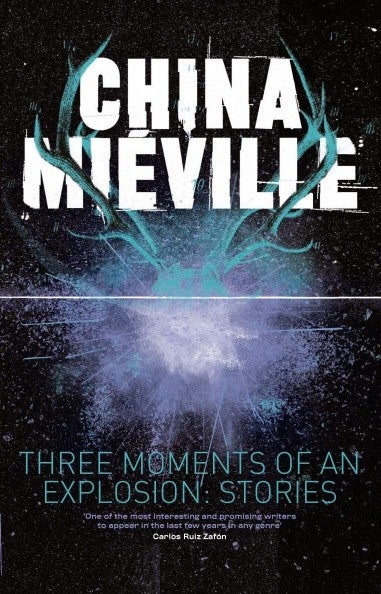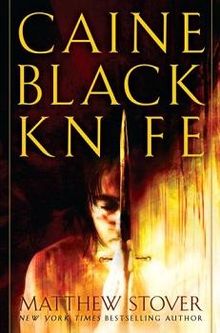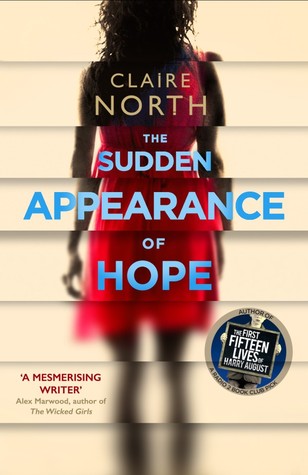I’m eagerly anticipating China Miéville’s next full length novel, but a new short story collection is a more than adequate way to bridge the gap. The collection contains 28 stories, some of which are lengthy and involved and some are simply a couple of pages long. It’s hit and miss as most collections are, but the misses are never too egregious and the hits hit hard.
The titular opening story Three Moments of an Explosion is more of a tone setter than anything else; brief, unnerving and intriguing, but not much to talk about in of itself. The subsequent Polynia is much meatier, taking place in a London whose skies have been invaded by inexplicable floating icebergs and the story of a boy who becomes obsessed with them. Its environmentalist message isn’t exactly subtle, but its unsettling and awe inspiring nonetheless. Miéville does a brilliant job depicting the strangeness of the new world the Londoners find themselves in; at eye level all is the same, but a quick glance up and you can see that something is very wrong indeed. The Condition of New Death is another shorter piece, but one of my favourite of the collection; you’re given just enough for the bizarre premise to lodge in your mind for days. I adored the next story¸ The Dowager of Bees, where mysterious and arcane suits occasionally appear in the hands of those playing high stake card games. Again, a sense of unsettling and alienation is what Miéville goes for here. There’s a palpable sense of danger whenever one of these cards appears. It isn’t necessarily layered with meaning, but it’s easily one of the most fun stories in the collection. The following story is another long one, In the Slopes. This tale of two warring archaeologists as they uncover a strange civilisation and culture beneath the earth is generally quite popular, but it didn’t quite land for me. This story is pure Lovecraft, a writer Miéville owes a lot to in content if not in style. The story is told from the point of view of a bystander, which simply left me feeling remote from the events and struggling to care. Still, the image of what lurks beneath the earth is highly compelling.
The Crawl is a weird one, describing scene for scene a trailer for a fictional movie about a civil war between two types of zombie. Stripped of context, it’s largely just a series of powerful imagery. I’m not really sure what Miéville is trying to say with The Crawl, whether it is meant as a comment on films and their marketing or simply a nugget of an idea he finds interesting. It’s odd but I liked it. Watching God is about an island where strange ships come and go and is surrounded by giant strange words. I suspect there was more to this one than I picked up, but it ends up as quite a compelling look at ritual and tradition and the way minor changes can throw a community into disarray. The brilliant The 9th Technique follows; it concerns a magical artefact created from the pain of a real life torture victim of Guantanamo Bay. The combination of the relatively familiar and fantastical world of dark magic and totems with the very real horror inflicted by those who many in the West consider to be ‘the good guys’ is deeply chilling. The Rope is the World could easily be stretched to an entire novel, and is written in the style of non-fiction, describing giant space elevators which have fallen into disrepair. Only a couple of pages long, Miéville asks a couple of fascinating questions and leaves it to the reader to answer them for themselves. The Buzzard’s Egg is one of the most overtly fantastical and is narrated by the elderly guard for totems of Gods taken by some kind of controlling empire. The nature of God, as well as how many may have been forgotten in the march of empires throughout history, is the order of the day here, with the rambling unreliable narrator putting everything through am intriguingly foggy lens.
Säcken is the most straightforward horror story of the collection, and is genuinely terrifying. It may lack the edge of satire seen elsewhere, but this story of a young woman and her older academic lover travelling to a lake in Germany is a huge amount of grisly fun. It was one of my favourites. Syllabus is just that for a strange university course. I’m ignorant enough of academia that I suspect any satire here flew over my head. Dreaded Outcome is probably the most straightforward story in the collection, but so much fun, following a psychologist and her unorthodox way of helping her patients. It’s silly, darkly funny and pretty broad, but coming around the middle of a collection it offers a nice bit of breathing space from the heavier stories that sandwich it. You need that breather because the next story, After the Festival, is the most grotesque of the collection, set in a London where a mainstream festival sees select Londoners place a severed and hollowed out animal head on theirs and parade through the city. As a comment on our culture’s attitude towards meat and animals it was uncomfortable and effective, particularly as a non-vegetarian like myself. This story is held back by a weak ending which aims for ambiguous but lands on unsatisfying, but that image of the grisly parade won’t be leaving my mind anytime soon. The Dusty Hat was a weird one; at first it appears to be a satire on the inability of the hard left to work together without splitting into warring factions, something which frustrates me as a proud Lefty myself, but it takes a strange turn into the fantastical which didn’t quite work for me.
Escapee is another entertaining fake trailer, although I think I enjoyed The Crawl more. The Bastard Prompt is a brilliant little thriller about actors who take work as fake patients for doctors to train on, who begin to name bizarre and alien symptoms. It’s chilling, sinister, fun and the symptoms themselves are gloriously inventive. I’d read an entire fake medical book if Miéville was behind it. Rules briefly describes a strange children’s game, interesting enough but not particularly memorable. Estate is another story set in London involving a strange ritual, a clear fascination of Miéville’s, where a burning stag is released through the city. I couldn’t work out what the point of this one was, but the imagery is very effective and powerful. Keep was another story with a great premise and an irritatingly obtuse ending, about a contagious illness where people sink into depressions in the ground if they are still for too long. It’s quite engaging, but doesn’t really come to much.
A Second Slice Manifesto is similar to Syllabus, following a strange new artistic method, but is a bit creepier and more atmospheric. I think it may be a bit of an examination on post-modernism, but I’m pretty ignorant about art so I may have missed something. Covehithe is awesome in the original sense of the word, where derelict oil rigs have picked themselves up from the ocean floor and begun to march on land. Similarly, to Polynia, the environmentalist message is pretty clear. It’s a cool story with some brilliant imagery in the vast, loping grace of the oil rigs. The Junket is the funniest story in the collection, about the murder of a screenwriter known for courting excessive controversy in his deeply offensive writing. It’s a brilliant take on an outrage addicted media, as well as the vapidity of offensiveness for offensiveness’s sake. Four Final Orpheuses briefly offers four alternative endings to the Orpheus and Eurydice myth; they’re mildly interesting but little beyond that. The Rabbet is a creepy little ghost story about a sinister animation, but I found it a little bit too straightforward. I really enjoyed most of the more straightforward stories in the collection, but I found this one a bit irritating, even if this one had an actual ending.
Listen the Birds is the third and final fake movie script, acting as the others do as a palate cleanser of sorts before the final two stories. A Mount isn’t a story so much as a prose description of porcelain animals. I enjoy Miéville’s writing enough that even something like this has a strange majesty. The collection ends strongly with The Design, the story of a 19th century doctor who discovers beautiful scrimshawing on the bones of a body he has dissected and becomes obsessed with their mystery. Lovecraft rears his head again, with a similar sense of cosmic dread and human irrelevance. Are the bones a message from an alien or magical creature, or was God simply doodling? Answers are less important than the nagging discomfort of just not knowing.
Three Moments of an Explosion is a brilliant example of Miéville’s range. Some are a lot of fun, some truly horrific, some satirical and clever and, yes, a few are obnoxiously obtuse. Still, I’d take a self-consciously intellectual approach of Miéville over something that’s, well, stupid.

Posted in
Short Story Collection and tagged
books,
china miéville,
fantasy,
horror,
literature,
new weird,
reading,
satire,
science fiction,
short stories,
socialism,
three moments of an explosion,
weird fiction |








